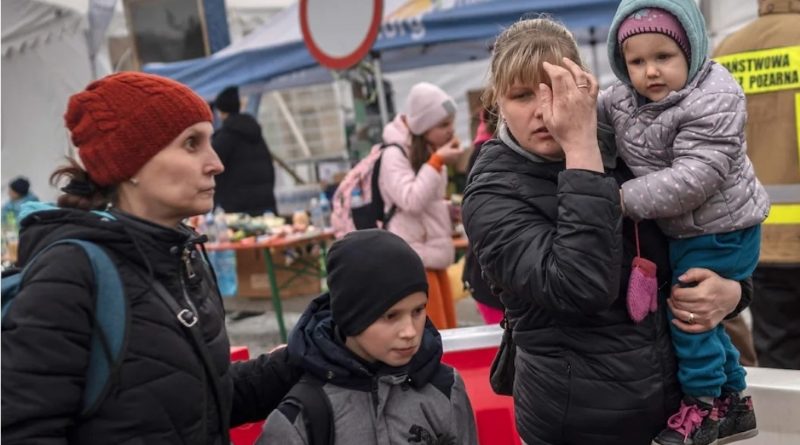The beginning of the end or the end of the beginning in Ukraine?
By Daniel W. Drezner, Professor of International Politics at the Fletcher School of Law and Diplomacy at Tufts University
Could the negotiations between Russia and Ukraine be going somewhere?
There has been a consistent pattern to the Russian position on negotiations with Ukraine. Russian officials are willing to meet with Ukrainian officials in Belarus or Turkey or using Israelis as go-betweens. Russian officials are also fine with those meetings not going anywhere while the war continues to rage on Ukrainian soil. It is almost as if the negotiations were intended to be more of a distraction or public relations ploy than anything else. There are even allegations that Russia poisoned some of the Ukrainian participants in a previous round.
This is the context in which I heard about the progress ostensibly made in Istanbul on Tuesday. According to the New York Times, “Russia and Ukraine achieved their most significant progress yet in peace negotiations on Tuesday, with Moscow promising to reduce ‘by multiples’ the intensity of its military activity around Kyiv and to its north.”
The Ukrainians also offered some terms of their own, including a pledge to negotiate the status of Crimea over the next 15 years. My Washington Post colleague Maite Fernández Simon reports that the Ukrainians “presented a number of proposals to their Russian counterparts, among them that Ukraine becomes a neutral state along with the promise to not host foreign military forces or bases in Ukrainian territory. In exchange, countries such as France, Turkey and Israel would ‘guarantee’ the country’s security.”
Sounds significant, but I am hardly the only observer to take Russia’s announcements at these negotiations with a healthy dose of skepticism. Foreign Policy’s Robbie Gramer noted a lot of skepticism among American and European officials, explaining: “The Russian officials saying it will reduce its military activities near Kyiv are the same ones saying Russia had no plans to invade Ukraine up to a day before the invasion.” My Post colleague Olivier Knox reports that White House Communications Director Kate Bedingfield characterized Russian troop movements as “a redeployment and not a withdrawal” and warned to expect a new “major offensive” by Moscow.
That said, Russia forces appear to be moving. U.S. generals have confirmed that Russian forces have left the Kyiv era. Lawrence Freedman noted that for Russia: “De-escalation is a euphemism for retreat … It’s not a ruse to say that they are concentrating on the Donbas, because in reality that’s all they can do.” Michael Kofman told Politico: “We should see this as a sign that Russia is revising down its war aims, and expanding options to end this phase of the conflict while spinning it as a victory with domestic audiences.”
In other words, Russia is trying to make a virtue out of necessity. Having lost any offensive momentum on most fronts, Russian forces are being diverted to the one area where they have made progress: the Donbas.
What should the United States do with that information? My Post colleague Max Boot answers, “By doubling down on aid to Ukraine and sanctions on Russia,” including acceding to Ukrainian requests for disconnecting all Russian banks from SWIFT and sending tanks and fighter jets to Ukraine.
I am not sure acceding to every request from Ukrainian President Volodymyr Zelensky is the right move. I do agree that giving Ukraine more leverage in negotiations is one way to make the Russians take them (and Zelensky) more seriously.
My suggestion would be to have President Biden or Secretary of State Antony Blinken make a speech that says the decision to lift any recently imposed sanctions on Russia rests with Zelensky. Say something to the effect that it would be difficult to lift sanctions unless Ukraine felt negotiations had borne fruit.
Outsourcing sanctions decisions to foreign leaders is an unorthodox move. It forces Putin, however, into recognizing he needs Zelensky as a partner to have any chance for getting out from under the sanctions. It makes it clear that Ukraine’s president is not an obstacle that can be removed, but rather a partner in ensuring Russia does not experience severe stagflation and a rising body count.
I said last week that both sides could conceive of a path to victory in this war, which guaranteed it would continue. This week suggests Russia has had to scale back its ambitions, while Ukraine’s proposals at the negotiating table suggest a way out. This could be the end of the beginning of this war. Let us hope it is, instead of the beginning of the end.
This piece is republished from The Washington Post.

